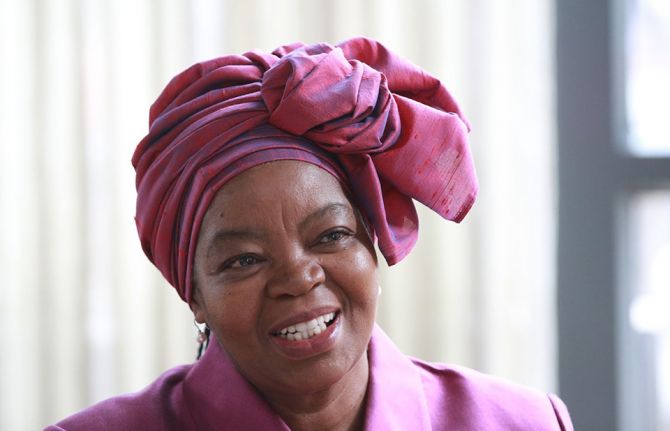

Opinion
Fulfilling our promise to adolescents and young people
03 December 2021
03 December 2021 03 December 2021By Prof. Sheila Tlou — Republished from Health Times
My years of work in HIV prevention have taught me a few things. Among them, one of the important things I have learnt is that if people do not know how to protect themselves or how to access treatment, they will not be able to prevent HIV or lead happy and fulfilling lives with HIV. Therefore, information and education is key. But its not the only thing needed. I might have the information that unsafe sex may expose me to HIV or other STIs, but I may still go ahead and engage in unprotected sex. This means that the motivation and means also have to be provided. The other thing I have learnt about imparting knowledge is that you have to do it before it is too late. People need to know how to prevent an illness before they come in contact with it or before they act in a way that allows their body to be vulnerable to it.
Children today are leading the charge on a number of global issues – be it girls’ education, be it climate change or HIV. We have at least two world leaders on the issue of girls’ education and of climate change – Malala and Greta – who began their leadership as children and made the world listen to them. Why is this possible in today’s day and age? Because we are all more and more connected, and children and young people are now growing up with the internet as well as other media.
But no one is born with the knowledge to handle this media or to know how to prevent illness. We all learn this. How to use a mosquito net to sleep in for avoiding malaria. How to wash our hands to prevent bacterial infection or COVID. How to use a condom to prevent HIV or other STIs. These are learnt behaviours and someone reliable and trustworthy needs to teach us or we are unlikely to listen.
All this to say that I know from my lifetime of experience, and the world knows through over a decade of evidence, that when you provide good quality, contextual and developmentally appropriate sexuality education to adolescents, it is effective. It results in less HIV infections, less early or unintended pregnancies and less unhappy couples!
Puberty, healthy relationships, and preparation for building a home and having a family are among those aspects of life that CSE teaches in schools. Addressing such topics can no longer be avoided because children are already being exposed through many, widely available channels. Unless a trusted source addresses it first, our children are at risk of taking wrong turns in life because of the things they read on the Internet, see on TV, or discuss with their friends. CSE offers comprehensive education – not just about puberty, healthy relationships, and preparation for starting a family. Indeed, the goal of is to support children in becoming well-rounded individuals. CSE teaches how to carefully think actions through and make decisions that are mature and healthy.
Here we are at the cusp of renewing our promise to our children and young people in east and southern Africa that we will give them the best possible education for their health and well-being, and access to the services they need. We are promising to them that we will do all we can for their brighter future. It tires me that there are still some people who want to rob our children of the education that gives them all the possible options and choices of protection, including abstinence, delaying sexual activity, condoms and other contraception. It tires me that there are some trouble makers spreading misinformation about sexuality education, when we know that CSE leads to healthier, happier and more fulfilled young people who have the information, attitudes and skills to make better life choices for themselves.
Let us reject this misinformation, trust our governments, and work together towards a better, healthier Africa.
Prof Sheila Tlou is the Co-Chair of the Global HIV Prevention Coalition, Former Minister of Health Botswana, distinguished advocate for human resources for health issues and a recognized visionary leader and champion through her initiatives on HIV and AIDS, gender, and women's health.
Related
 “Who will protect our young people?”
“Who will protect our young people?”

02 June 2025


